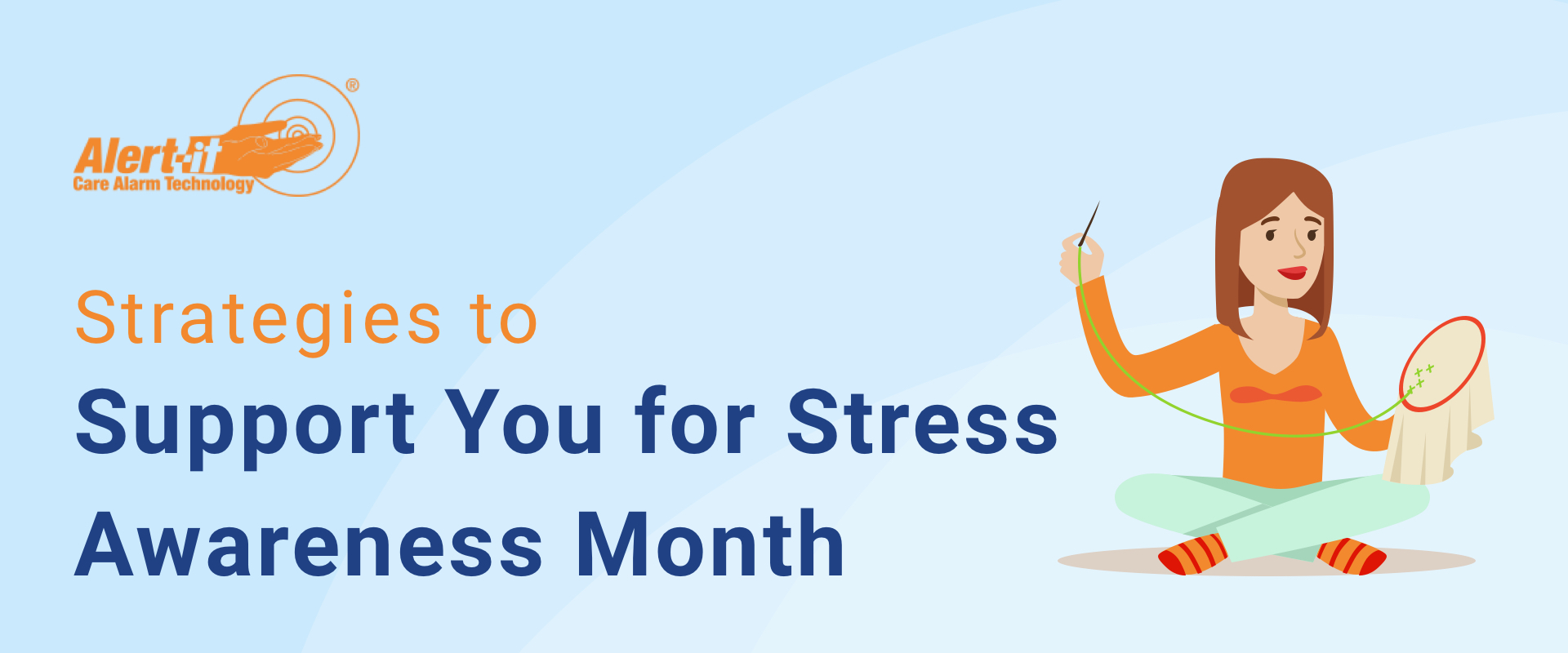Strategies to support you for stress awareness month
April is stress awareness month. Most of us will have experienced some levels of it, particularly this last year, but as a carer, it’s sometimes hard to recognise you’re burning out when your focus is predominantly on someone else.
Out of love, obligation, and a sense of doing what’s expected, taking care of a family member who is elderly, chronically ill, or a disabled loved one can subconsciously bring on stress. So what can you do to minimise or even recognise stress? Here are some stress handling methods and tools to think about if you find yourself feeling like you’re not coping or things are getting out of control.
Recognise you’re burning out
Lack of energy, sleep problems, a feeling of helplessness and fatigue are all signs that you need to listen to your body. Try to set aside just 15 minutes per day to practice meditation, writing in a journal or stretching. Like a child, a good bedtime routine is important too. You’ll find them simple and effective ways to calm the mind and take back some control.

Give yourself peace of mind
Technology advancements bring the ability to monitor loved ones even when you’re not with them, which is particularly comforting in the middle of the night. Our Pulse Companion, which can be used with children and adults, identifies changes in the heart rate in someone who has Epilepsy whilst they sleep that could indicate a seizure sending an alarm to you via a pager. There is also the added ability to detect and prevent falls in the home before they happen using our Sense-iT technology.
Take the 30-day challenge
The Stress Management Society has launched The 30 Day Challenge following a study with Huawei on Stress which revealed that 65% of people in the UK had felt more stressed since the COVID-19 restrictions began in March 2020. The three key causes for concern are feelings of disconnection, uncertainty, and a worrying loss of control. They’re challenging everyone to pick an action from the Physical, Mental and Emotional Well-being. You could even add actions for your social and spiritual wellness too. The 30-day challenge will maximise your chances of turning helpful knowledge and techniques into positive behavioural change. You can find out more by going to https://www.stress.org.uk/30daychallenge/

Coping with stress
Talk to someone. It’s that old but true cliché “a problem shared is a problem halved”. Don’t be embarrassed to say you’re not coping. Speak to a friend or family member. If you don’t feel comfortable speaking to a loved one or stress is putting you at risk, visit your GP or speak to someone anonymously, contact the Samaritans, or there are some great resources on https://www.mentalhealth.org.uk/

It’s important to recognise when you’re feeling overwhelmed and under pressure, and we hope that these tips and tools will help you navigate through any stress and anxiety. And always remember, you’re not alone; it’s ok to ask for help.
If you’d like to read some of our other blogs, please visit https://alert-it.co.uk/blog/
Tags:
@StressMgtSoc
@Samaritans
@MentalHealth
Hashtags:
#StressAwarenessMonth
#StressAwarenessMonth2021
#RegainConnectionCertaintyControl
#TheStressManagementSociety
#Samaritans
#ItsOkNotToBeOk


